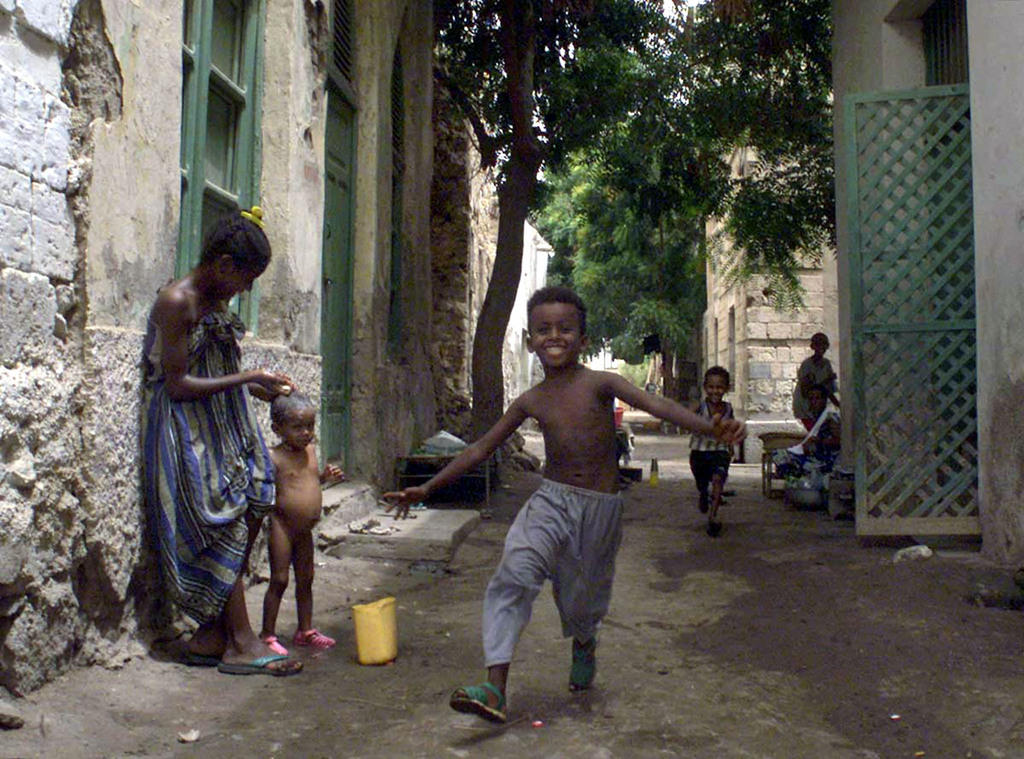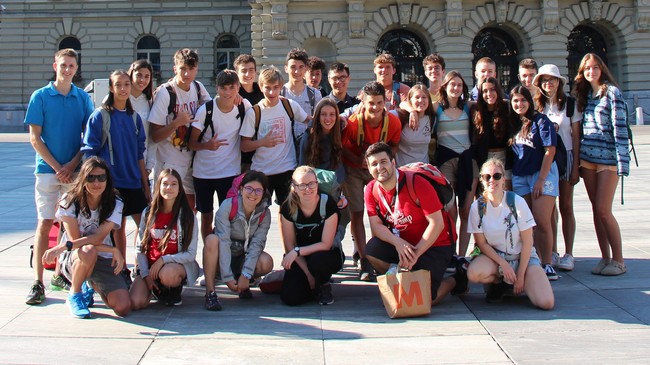
Swiss re-start cooperation projects in Eritrea

Switzerland has resumed support for cooperation projects in Eritrea, having withdrawn from the east African country over ten years ago. Since the beginning of October, Switzerland has supported two vocational projects in the country – one of which has attracted criticism for its relationship to the Eritrean government.
The Swiss Agency for Development and Cooperation (SDC), the foreign ministry office in charge of Switzerland’s international cooperation, was active in Eritrea from 1993 to 2006 and ran a cooperation office in the capital Asmara from 2001 to 2006, mainly for humanitarian operations.
The office was closed in 2006 because the conditions needed for the SDC to carry out its activities were not met, the foreign ministry said in a statement on Thursday.
The new vocational projects will run in a pilot phase until the end of 2019. The first project, run by the private organisation Swiss Support Committee for Eritrea (SUKE), supports a vocational school in the port city of Massawa. The school’s instructors are themselves employed in companies in the region. They train workers, teach further training courses and also get the chance to develop their own skills. The programme is regularly adapted to local job market requirements.
The second project supports a training programme run by the Don Bosco organisation via the agency International Volunteer Service for Development. The programme assists vocational schools in the regions of Asmara, Dekemhare, Nakfa, Hagaz and Mai Habar. These schools give disadvantaged young people, especially girls, the chance to learn a trade.
Controversial choice
On Friday, the SDC defended its selection of SUKE as a partner for its efforts on the vocational school to the Swiss press, after an article published by Swiss public radio RTS pointed out that the choice was “surprising” because of SUKE head Toni Locher’s “pro-government positions [which have] earned him the criticism of some of the Eritrean diaspora in Switzerland.” The RTS article stated that Locher, a “personal friend of the Eritrean president”, has in the past blocked visas for Swiss journalists who accuse the Eritrean regime of being a dictatorship.
The SDC defended itself to the Swiss News Agency, saying that it “has decided to work only with organisations that are already well established in Eritrea. SUKE is an organisation that has implemented, for many years and with success, development programs in this country.”
In fact, the SDC said it considers the links between SUKE and the regime in the Eritrean capital of Asmara to be a facilitating factor.
“The relations established with the Eritrean government and SUKE are an advantage for the realisation of the vocational school in Massawa,” wrote a spokesperson, adding that the reputation of SUKE with the authorities is “a necessary basis to be able to work in this context”.
The SDC added that the organisation has certification that requires checks to be made on the proper use of funds, and that the project will also be monitored closely from Bern, and by a representative from the Swiss embassy in Khartoum, Sudan.
Strengthen dialogue
“Switzerland hopes to see gradual improvements in the collaboration with the Eritrean authorities at the bilateral and multilateral level,” the foreign ministry said of the SDC projects.
“Switzerland will also have the opportunity alongside the international community to strengthen dialogue with the Eritrean government on a number of issues, including the human rights situation, development and the rule of law.”
The SDC’s annual contribution to the two projects is around CHF1 million ($1.03 million).
About 20,000 Eritreans live in Switzerland, the largest Eritrean diaspora in the world. In addition, Eritreans make up the largest national group of asylum seekers in Switzerland.

In compliance with the JTI standards
More: SWI swissinfo.ch certified by the Journalism Trust Initiative
















![The four-metre-long painting "Sonntag der Bergbauern" [Sunday of the Mountain Farmers, 1923-24/26] had to be removed by a crane from the German Chancellery in Berlin for the exhibition in Bern.](https://www.swissinfo.ch/content/wp-content/uploads/sites/13/2025/12/01_Pressebild_KirchnerxKirchner.jpg?ver=cb688ed5)














You can find an overview of ongoing debates with our journalists here . Please join us!
If you want to start a conversation about a topic raised in this article or want to report factual errors, email us at english@swissinfo.ch.